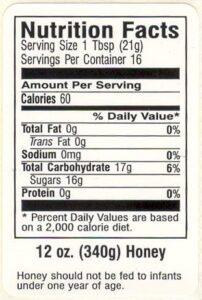 Can diabetics eat honey? Although diabetics should limit their sugar intake, including honey, your doctor may tell you that honey could be a healthier choice than table sugar in a diabetic diet.
Can diabetics eat honey? Although diabetics should limit their sugar intake, including honey, your doctor may tell you that honey could be a healthier choice than table sugar in a diabetic diet.
Consuming honey can be a contentious issue for people with diabetes. For some, it is part of a healthy diet; for others, it could raise blood sugar levels too high. Find out what benefits and risks are associated with eating honey if you have diabetes or pre-diabetes.
Understanding How Honey Impacts Blood Sugar Levels
When considering the potential impact of honey on diabetic blood sugar levels, it’s important to understand that honey is comprised of fructose and glucose. Eating honey means that both types of sugars are entering the body simultaneously, which could cause a spike in insulin or blood sugar levels. People with diabetes should be mindful of the amount of honey they consume in order to not increase their risk for further complications.
Moderation is Key to Avoiding Unwanted Reactions
For individuals with diabetes, eating honey can be a tricky situation. Consuming too much honey could lead to increased blood sugar levels and other potential complications. Research suggests that people should limit their intake of honey when possible, as it is still a high-sugar food that has the potential to cause unwanted reactions. Moderation is key for those who have diabetes and want to enjoy the benefits of honey.
